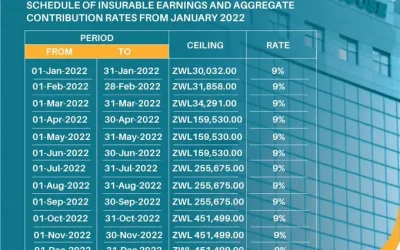We often get enquiries on the VAT treatment of deposits.
This may be because there are different types of deposits with different VAT rules for each. I thought that it would be helpful for all the rules to be set out in one place, and some comments on how certain transactions are structured.
To make this very easy, lets explore the Finance Act No. 1/2019. This Act was published in a Government Gazette Extraordinary dated 20th February 2019 [see General Notice 298A/2019]. The Finance Act, came with an amendment to definition of “Time of Supply”.
With effect from the 1st January, 2019, section 8 (“Time of supply”) of the Value Added Tax Act [Chapter 23:12] is amended by the repeal of subsection (1) and the substitution of—
(1) For the purposes of this Act, a supply of goods or services shall, except as is otherwise provided for in this Act, be deemed to take place—
(a) at the time an invoice is issued by the supplier or the recipient in respect of that supply; or(b) at the time any payment of consideration is received by the supplier in respect of that supply; or
(c) in the case of a supply of a moveable good, at the time of its removal from the place of sale; or
(d) in the case of a supply of an immoveable goods, at the time the recipient takes possession of it; or
(e) in the case of a supply of a service at the time the service is performed;
whichever time is earlier.”.
The so called “time of supply” provisions outlined above are particularly relevant because the time at which a supply is deemed to be made determines when the obligation to remit VAT to ZIMRA comes into effect.
Broadly, we are looking at the tax point rules. The tax point is the time at which output tax is due.
A business may have various commercial arrangements for payments such as:
- receiving advance payments
- credit sales
Advance payments and deposits.
An advance payment, or deposit, is a proportion of the total selling price that a customer pays a business before it supplies them with goods or services.
The tax point if an advance payment is made is whichever of the following happens first:
- the date a VAT invoice for the advance payment is issued
- the date you the advance payment is received
The VAT due on the value of the advance payment is included on the VAT return for the period when the tax point occurs. If the customer pays the remaining balance before the goods are delivered or the services are performed, a further tax point is created when whichever of the following happens first:
• the date a VAT invoice for the balance is issued
• payment of the balance is received
Credit and conditional sales
This is where the rules can get rather more complex.
- A credit sale means the sale of goods which immediately become the property of the customer but where the price is paid in instalments.
- A conditional sale is where goods are supplied to a customer but the goods remain the seller’s property until they are paid for in full.
The tax point for a credit sale or a conditional sale is created at the time you supply the goods or services to your customer. This is the basic tax point and is when you should account for the VAT on the full value of the goods.
This basic tax point may be over-ridden and an actual tax point created if a business:
- issues a VAT invoice or receives payment before supplying the goods or services
- issues a VAT invoice up to 14 days after the basic tax point


